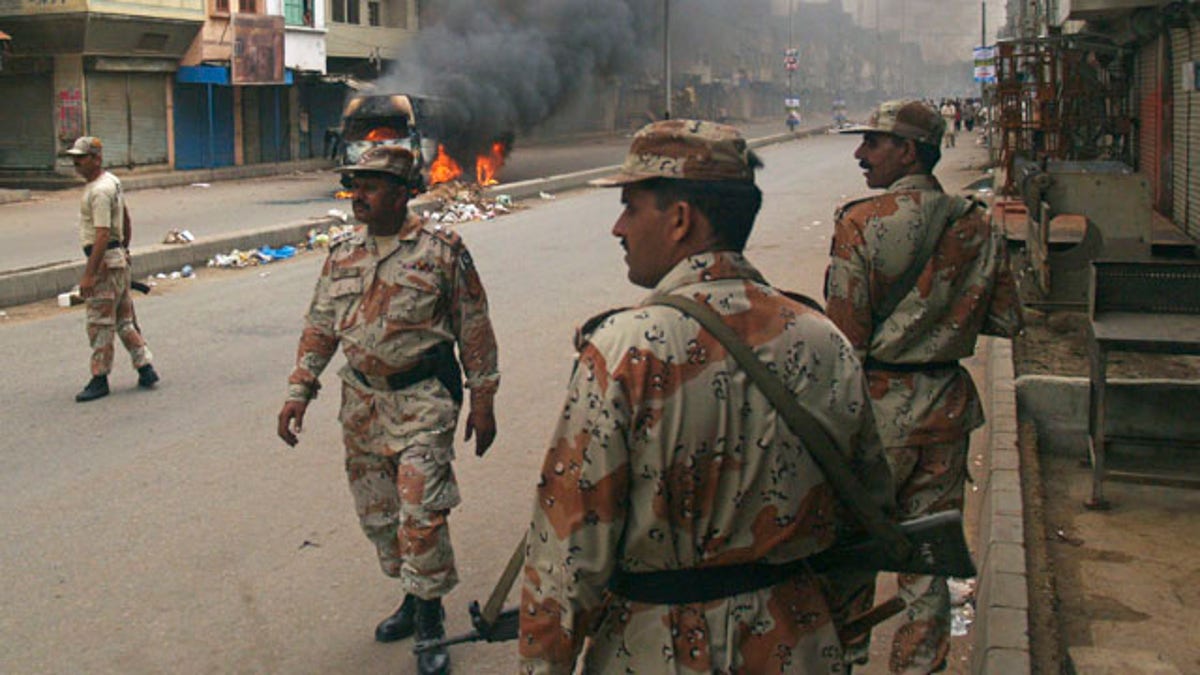
Aug. 3: Pakistani para military troops gather near a vehicle set on fire by an angry mob following the killing of a local leader of the Muttahida Quami Movement in Pakistan. (AP)
WASHINGTON—The U.S. military has stopped lobbying Pakistan to help root out one of the biggest militant threats to coalition forces in Afghanistan, U.S. officials say, acknowledging that the failure to win better help from Islamabad threatens to damage a linchpin of their Afghan strategy.
Until recently, the U.S. had been pressing Islamabad to launch major operations against the Haqqani network, a militant group connected to Al Qaeda that controls a key border region where U.S. defense and intelligence officials believe Usama bin Laden has hidden.
The group has been implicated in the Dec. 30 bombing of a CIA base in Khost, a January assault on Afghan government ministries and a luxury hotel in Kabul, and in the killing of five United Nations staffers in last year's raid on a U.N. guesthouse.
But military officials have decided that pressing Pakistan for help against the group—as much as it is needed—is counterproductive.
U.S. officials believe elements of Pakistan's intelligence agency, Inter-Services Intelligence, are continuing to protect the Haqqani network to help it retain influence in Afghanistan once the U.S. military eventually leaves the country. U.S. officials say the support includes housing, intelligence and even strategic planning,
During a trip to Pakistan last month, Adm. Michael Mullen, chairman of the Joint Chiefs of Staff, chose not to raise the issue of an offensive against the Haqqani network—a departure from the message U.S. defense officials delivered earlier this year.
The U.S. also had intensified the pressure for Pakistani operations in North Waziristan in May after the attempted bombing of New York's Times Square was linked to militants in Pakistan.
Pakistan officials reject the U.S. conclusions about their efforts. They say they are taking significant action against militants in North Waziristan. They say their intelligence service has severed all ties with the Haqqani network.
Click here for more on this story from the Wall Street Journal.
